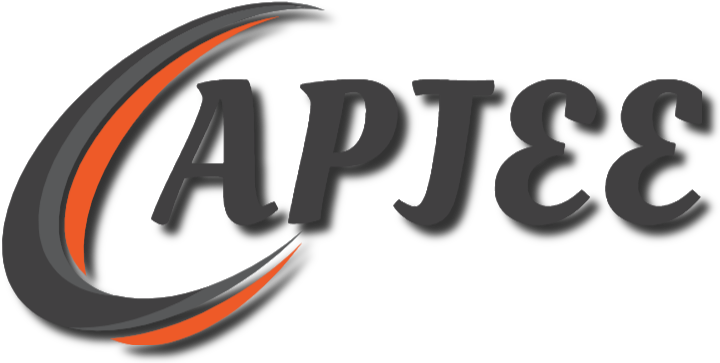‘Wasteaware’ Indicators: an Assessment of the Current Solid Waste Management System in Lahore, Pakistan
DOI:
https://doi.org/10.18034/apjee.v6i2.264Keywords:
Lahore Waste Management System (LWMC), Municipal Solid Waste (MSW), Union Council (UC)Abstract
The present status of solid waste management reviewed into this article based in Lahore, Pakistan. Following UN-Habitat city profiling with involved systematic quantitative, qualitative assessment, governance features of the present waste management includes in and shows the present system, waste collection, transportation is the main concentration and producing 74,000 tons year-1 of organic compost. Lahore waste management system (LWMC) is low in their target market consulted in decision making (inclusivity) and bad performance (governance features). Formal waste management system having backward of the informal system, which is absolutely inconsistent with current waste management systems. Watchful arranging and organization proposed here to reduce the trouble by integrating informal waste management system into formal waste management system for shared advantages. The integrated sustainable waste management (ISWM) indicators used for different levels of income class and LWMC performance in Lahore. Recommendation builds for the public awareness for recycling and to make the integrating informal sector sustainable system and fill the historical data gap.
Downloads
References
Anschütz, J., IJgosse, J., & Scheinberg, A. (2004). Putting integrated sustainable waste management into practice. Using the ISWM assessment methodology, WASTE, Gouda, The Netherlands.
ISTAC (2012) Summer 2012 Waste Characterization Study, Lahore, Pakistan. İSTAÇ AŞ: Istanbul Environmental Management Industry.
JICA (Japan International Cooperation Agency) and Pak-EPA (Pakistan Environmental Protection Agency) (2005) Guidelines for Solid Waste Management. Pakistan: Pak-EPA.
JICA and Pak-EPA (2005) Guidelines for Solid Waste Management. Punjab: Government of Punjab.
Klundert, V. D. A., & Anschütz, J. (2001). Integrated sustainable waste management–the concept. WASTE, Gouda, The Netherlands.
LWMC (Lahore Waste Management Company) (2012b) Progress Report of LWMC 2011–12. Lahore, Pakistan.
Masood M and Barlow CY (2012) Status of solid waste management practices in developing countries- A case study on Lahore, Pakistan. In: Proceedings Venice 2012, 4th international symposium on energy from biomass and waste. Italy: CISA Publisher.
Masood, M., & Barlow, C. Y. (2013). Framework for integration of informal waste management sector with the formal sector in Pakistan. Waste Management & Research, 31(10_suppl), 93-105. DOI: https://doi.org/10.1177/0734242X13499811
Masood, M., and C. Y. Barlow. "Status of solid waste management practices in developing countries-A case study on Lahore, Pakistan." WASTE MANAGEMENT 34 (2014): 837-839.
Masood, M., Barlow, C. Y., & Wilson, D. C. (2014). An assessment of the current municipal solid waste management system in Lahore, Pakistan. Waste Management & Research, 32(9), 834-847.
Masood, M., Barlow, C. Y., & Wilson, D. C. (2014). An assessment of the current municipal solid waste management system in Lahore, Pakistan. Waste Management & Research, 32(9), 834-847. DOI: https://doi.org/10.1177/0734242X14545373
Rushbrook, P., & Pugh, M. (1999). Solid waste landfills in middle-and lower-income countries. A technical guide to planning, design, and operation. World bank technical paper, (426). DOI: https://doi.org/10.1596/0-8213-4457-9
Scheinberg, A., Simpson, M., Gupt, Y., Anschütz, J., Haenen, I., Tasheva, E., & Gunsilius, E. (2010). Economic aspects of the informal sector in solid waste management. WASTE, SKAT, and city partners for GTZ (Deutsche Gesellschaft furTechnische Zusammenarbeit) and CWG (Collaborative Working Group on Solid Waste Management in Low-and middle-Income Countries) Eschborn, Germany.
Schübeler, P., Christen, J., & Wehrle, K. (1996). Conceptual framework for municipal solid waste management in low-income countries (Vol. 9). SKAT (Swiss Center for Development Cooperation).
Sembiring, E., & Nitivattananon, V. (2010). Sustainable solid waste management toward an inclusive society: Integration of the informal sector. Resources, Conservation and Recycling, 54(11), 802-809. DOI: https://doi.org/10.1016/j.resconrec.2009.12.010
Soos, R., Whiteman, A. D., Wilson, D. C., & Briciu, C. (2013). Operator Models–Understanding Local Objectives: Respecting Diversity. the series: Concepts for Sustainable Waste Management. GIZ (Deutsche Gesellschaft für Internationale ZusammenarbeitGmbH),Eschborn.[Online](< http://www. giz. de/en/downloads/giz2013-swm-operator-models-sourcebooken. pdf>(accessed 08.04. 14)).
Tariq, S., Gill, K., Ali, M., & Alamgir, A. (2017). ScienceDirect Integrated Solid Waste Management System in University of Karachi, 0, 1–12.
Velis, C. A., Wilson, D. C., Rocca, O., Smith, S. R., Mavropoulos, A., & Cheeseman, C. R. (2012). An analytical framework and tool (‘InteRa’) for integrating the informal recycling sector in waste and resource management systems in developing countries. Waste Management & Research, 30(9_suppl), 43-66. DOI: https://doi.org/10.1177/0734242X12454934
Wilson, D. C. (2007). Development drivers for waste management. Waste Management & Research, 25(3), 198-207. DOI: https://doi.org/10.1177/0734242X07079149
Wilson, D. C., & Ing, L. R. D. (2013). Integrated sustainable waste management in developing countries. Proceedings of the Institution of Civil Engineers, 166(2), 52.
Wilson, D. C., Rodic, L., Scheinberg, A., Velis, C. A., & Alabaster, G. (2012). Comparative analysis of solid waste management in 20 cities. Waste Management & Research, 30(3), 237-254. DOI: https://doi.org/10.1177/0734242X12437569
Wilson, D. C., Rodic-Wiersma, L., Cowing, M. J., Whiteman, A., Stretz, J., & Scheinberg, A. (2013). Benchmark indicators for Integrated Sustainable Waste Management (ISWM).
-- 0 --
Downloads
Published
Issue
Section
License









